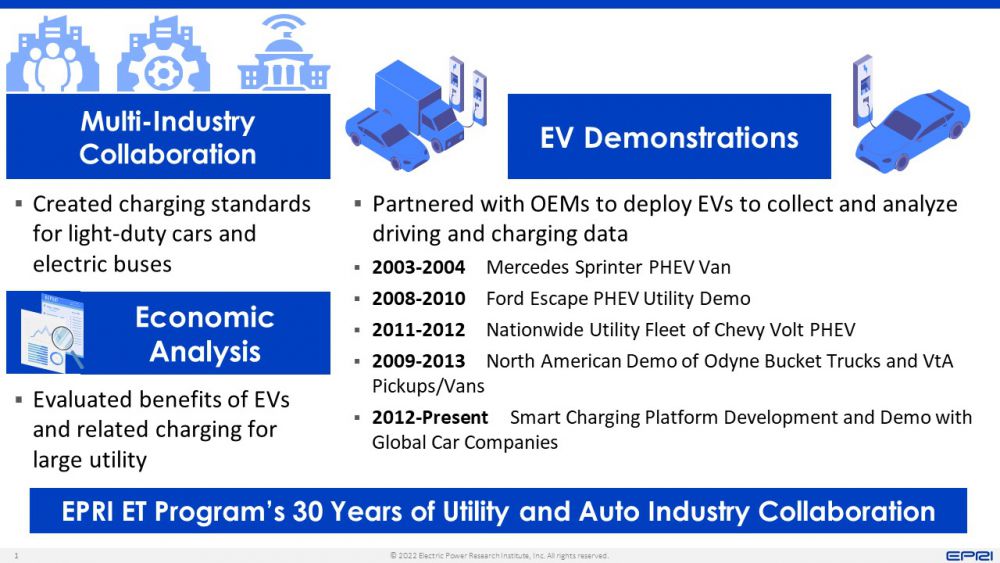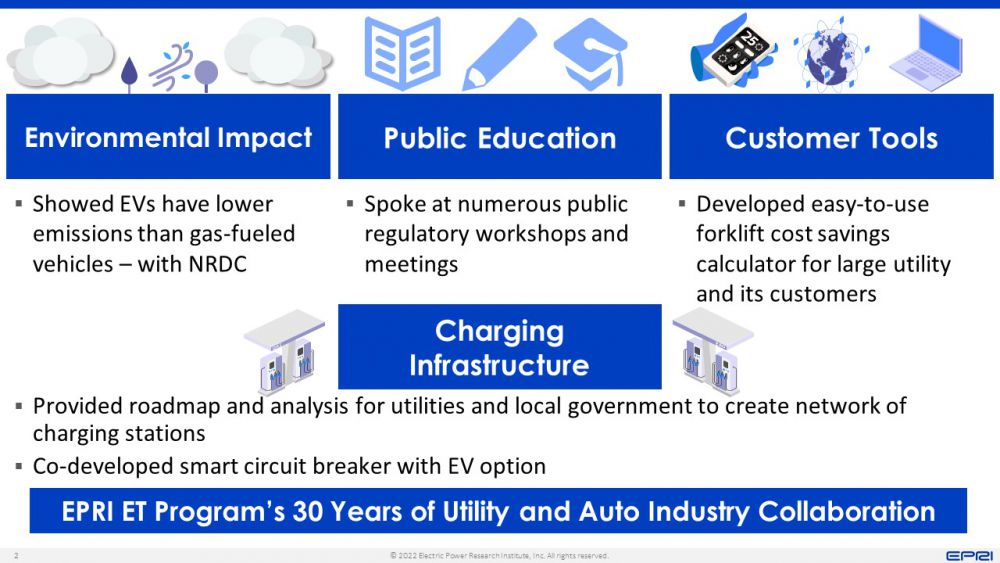Difference between revisions of "About Us"
Jump to navigation
Jump to search
| Line 15: | Line 15: | ||
* <strong>Customer Tools</strong> | * <strong>Customer Tools</strong> | ||
[[File:Slide1.JPG| | [[File:Slide1.JPG|1000px|thumb|left]] | ||
[[File:Slide2.JPG| | [[File:Slide2.JPG|1000px|thumb|right]] | ||
Revision as of 12:39, 11 July 2022
EPRI's Electric Transportation program has conducted research and collaborated with utilities and the auto industry for over 30 years. Since the creation of the Electric Transportation Infrastructure Working Council (IWC) in 1991, the program has contributed to the achievement of numerous milestones and successes through:
- EV Demonstrations
- Multi-Industry Collaboration
- Charging Infrastructure
- Environmental Impact
- Public Education
- Economic Analysis and
- Customer Tools
Our Program
The Electric Transportation program utilizes several approaches to advance research in the rapidly changing landscape:
| Subject | Approach | Accomplishments | Current Year Activities |
|---|---|---|---|
Utility Customers
|
|
|
|
Thought Leadership on Markets and Technology
|
|
|
|
Research, Development, Testing, and Collaborative Demonstrations
|
|
|
|
Leadership on Informing Standards
|
|
|
|
Tools and Analyses to Enable Market Transformation
|
|
|
|

